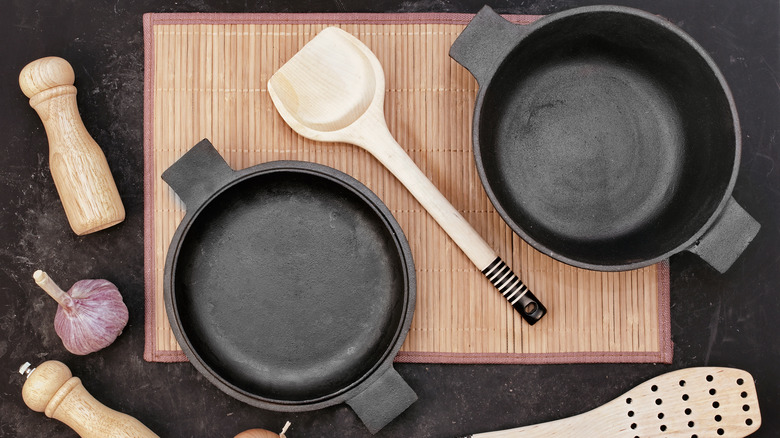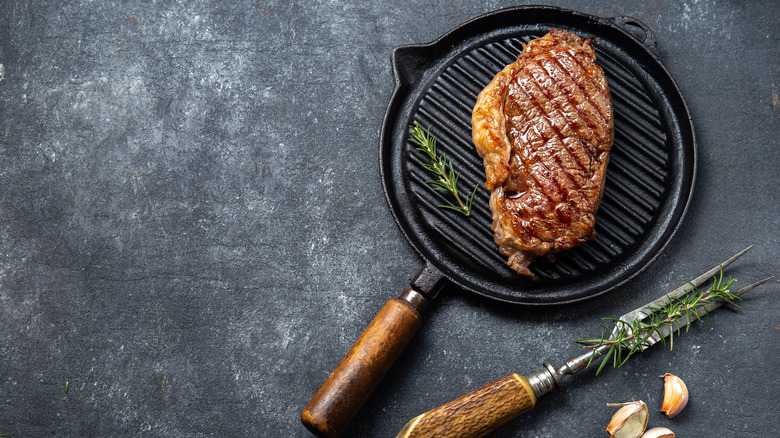Why It's Better To Use Moderate Heat With Cast-Iron Skillets
Fans of cast-iron often tout the tried-and-true pan's ability to create the perfect sear on steaks and vegetables alike. That high flavor sear often comes from cooking with high heat. So, why is it best to use a cast-iron skillet over a more moderate heat even when you're going for high heat cooking?
Cast-iron is probably one of the oldest cooking tools still in modern use. It was originally used to make cooking tools in China around 220 A.D. (via WebstaurantStore). The popular technique then spread all across the globe. According to the site, cast-iron was the preferred cooking material from the debut of the sand-casting manufacturing process in the 18th century until the advent of materials like aluminum and Teflon in the 20th century.
In more recent history, the humble cast-iron pan has seen a resurgence in popularity, and many home chefs are learning how to make the most out of their pans. According to Kitchn, cast-iron takes a long time to heat up, but holds that heat far better than other materials. Because of this, it's best to work with it on medium heat.
Why use moderate heat?
Kitchn notes that cast-iron pans are far heavier than the modern cookware most home chefs are accustomed to using. This is because they're made with a much denser metal, and for that reason take longer to heat up. That's why it's important to preheat pans before adding oil or other ingredients. That density is also what allows the pan to hold its heat incredibly well. Cast-iron manufacturer Lodge says it's not necessary to cook on a setting higher than medium. Cooking on a heat higher than medium is actually likely to cause your food to burn or stick because of the cast-iron's unique conductive properties (via Kitchn).
Once the pan is up to temperature, it doesn't need to be over a high flame to cook as if it were. That excess heat that's held in the pan is going to be what produces a perfect char on burgers, steaks, and vegetables. Cast-irons are great for all sorts of dishes. They just bring plenty of myths and misconceptions along with them. With a little patience, and practice though they can be a valuable asset for any home chef's arsenal.

